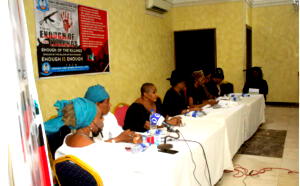By Bobson Gbinije Father, let me be able to fulfill the expectations of my friends and disappoint the hopes of my enemies — Abraham Linc...
By Bobson Gbinije
Father, let me be able to fulfill the expectations of my friends and disappoint the hopes of my enemies —Abraham Lincoln(1809-1865)
LIKE Zeus on Mount Olympus, Nigerians were transported with celestial joy and they soared on the wings of ecstatic delight following the eight wonder world visit of the then President Bill Clinton of America. Every Nigerian, especially those in the Federal Capital Territory, rose to the occasion with zealotry and patriotism.
By every conventional and accepted canon of diplomacy and international relations, it was a huge success. But what made it a more consummate success was the vote of thanks delivered by Alhaji Ghali Na’Abba, the then Speaker of the House of Representatives. Bill Clinton characteristically delivered a very powerful speech in which he took a cross sample analysis and an encyclopedic overview of Nigeria’s problems, touching on our mutual interest as democratic nations, the need for economic symbiosis and our common humanity.
He said: “You have begun to walk the long road to repair the wrongs and errors of the past and build bridges for a better future. The road is harder and the rewards are slower than all hoped it would be when you began.
But what is most important is that today you are moving forward. And I am here because your fight for democracy and human rights, for equity and economic growth, for peace and tolerance, your fight is America’s fight and the world’s fight”.
This was most reassuring, as it drew a thunderous applause from the House. Mr. Clinton felt the pulses in our social, religious, historical, political and cultural life as a people. His speech was all-embracing and omni-directional. On unity, cultural diversity and religious schisms he said: “Your religious diversity and your ethnic diversity is a great opportunity; if we can find unity in our common humanity, if we can learn not only to tolerate our differences, but actually to celebrate our differences,… if we are torn by our difference, then we become less than the sum of our parts.”
His speech was a magnum opus and a veritable tour de force, delivered in classical cadence, aplomb style and laced with gesticulative theatrics and the brilliance of diction. An earlier welcome address read by the then Senate President, Anyim Pius Anyim, though terse and illuminating, lacked grandeur. If Okadigbo, Ojukwu, Bola Ige, Okereke, Wole Soyinka and Professor Opubor were here, I had lamented. Definitely, the then President Obasanjo is not a very fine speaker, but he can make his points clear. On that occasion we needed men who possessed the gift of the gab like Anyaoku, Ojukwu, Bola Ige, Professor Opubor, Zik, Tafawa Balewa, etc.
Then came the moment of glory for the Speaker of the House of Representatives, Na’Abba to move a vote of thanks. I was jittery initially. But he started beautifully well. His style was chameleonic, but the rhythm was there.
It was a blend of Fabian diction and encyclopedic poetry. I leapt from my seat, shouting Hallelujah, Hallelujah, and Hallelujah that God provided us with Na’Abba on that very day. He started with vulpine proclivities by giving a personal eulogy on Bill Clinton.
READ ALSO: Zamfara group dismisses alleged defection of APC chieftains
He said: “It is common knowledge that President Clinton is highly revered and respected by many democrats all over the world. Your visit here has afforded all Nigerians and indeed members of our legislature the opportunity to tell and demonstrate how much we love and respect you.
“Never in Nigeria’s recent history has the visit of a foreign head of state attracted the interest of Nigerians all over the country”. This of course, is the truth. Na’Abba took the opportunity to solicit for the assistance of the American Government in encouraging and defending our inchoate and nascent democracy.
He pleaded that Nigeria and America could work to uplift the dignity of man, uphold democracy values, promote trade and investment, enhance science and technology, and make our society a better place to live in. He spoke like Cicero. His oratorical dexterity drew molten magma from the crater of a passive volcano. The thunderous and clamorous plaudit from the applauding multitude shook the National Assembly from turret top to foundation stone.
It was a splendid demonstration of the power of the word. He took a swipe on the excesses of the executive. He gored and tossed the executives on the horns of a political dilemma.
He said: “We must learn to respect and strictly adhere to the principles of separation of powers as enshrined in the constitution and give each arm of government its due constitutional rights. A situation where the legislative arm is glaringly denied the exercise of its constitutionally-guaranteed oversight functions, and in effect, therefore, being emasculated with a view to the whims and caprices of the executive, is not only disturbing but portends great dangers for our young democracy”.
His argument was methodical, his deductions self-evident and his application striking and most effective. His thinking was very incisive, his appraisal realistic and judgement decisive. It struck a chord in the intuitive perception, it heightened the intellect and the creative zeal and synchronized thought pattern.
We give then and now great plaudit and honour to Alhaji Ghali Na’Abba for rekindling the glory of diction and oratory which has become a scarce commodity in our present breed of politicians. God Bless Na’Abba.
Gbinije, a commentator on national issues, wrote from Warri.
The post Politicians and the dearth of oratorical dexterity appeared first on Vanguard News.


No comments